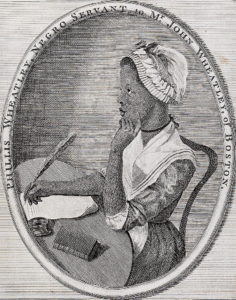
Phillis’ extraordinary talent in language arts captured attention and praise from diverse audiences, including Africans and African Americans, London’s social elite, and General George Washington. In reading her work and learning her life story readers discover an intelligent, courageous, driven, compassionate, and optimistic woman who defied all odds against her in making a lasting legacy for centuries to come. Her success despite the systemic oppression against people of color and women underscores the importance of KIPP Wheatley’s dedication to developing readers and writers with a critical consciousness and commitment to social justice.
Download these printable Phillis Wheatley bookmarks to share with your students.
Download this Phillis Wheatley poster to share in your classroom.
Download this Phillis Wheatley fact sheet to learn more about Phillis Wheatley’s life and legacy.
LEARN MORE
Explore the links below for online biographies, articles, and videos. Please note these are third party resources.
- Phillis Wheatley biography from Biography.com
- Phillis Wheatley biography from Readworks.org
- Phillis Wheatley biography and poetry from Poetry Foundation
- Phillis Wheatley biography from PBS & National Park Services
- Phillis Wheatley article from Smithsonian Magazine
- Video: Phillis Wheatley from series “Great African American Authors”